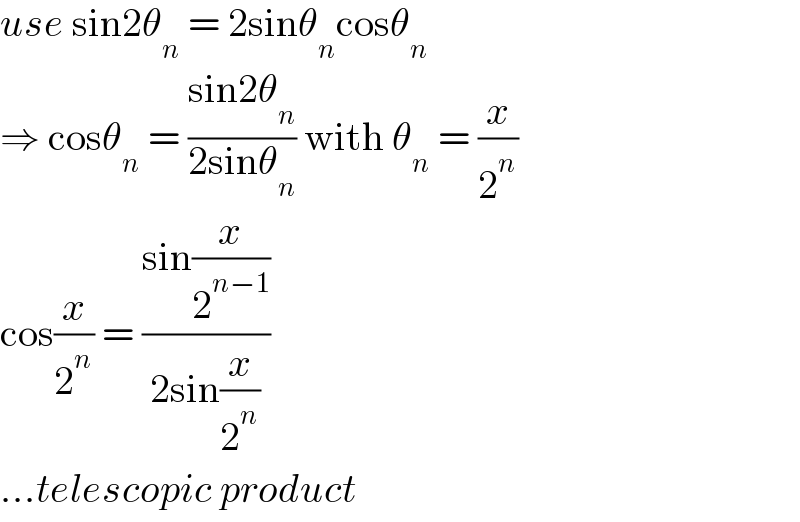
Question and Answers Forum
Question Number 147528 by alcohol last updated on 21/Jul/21
![q_n =Π_(n=0) ^∞ cos((x/2^n )) i) study the variation of q_n ii) show that cosx=((sin2x)/(2sinx)) , ∀x∈[0,(π/2)] iii) deduce that q_n =(1/2^(n+1) )×((sin2x)/(sin((x/2^n )))) iv)lim_(n→∞) q_n =? v) solve cos((x/2))≥−(1/2)](Q147528.png)
Commented by Olaf_Thorendsen last updated on 21/Jul/21

Commented by alcohol last updated on 21/Jul/21

Commented by puissant last updated on 21/Jul/21

| ||
Question and Answers Forum | ||
Question Number 147528 by alcohol last updated on 21/Jul/21 | ||
![q_n =Π_(n=0) ^∞ cos((x/2^n )) i) study the variation of q_n ii) show that cosx=((sin2x)/(2sinx)) , ∀x∈[0,(π/2)] iii) deduce that q_n =(1/2^(n+1) )×((sin2x)/(sin((x/2^n )))) iv)lim_(n→∞) q_n =? v) solve cos((x/2))≥−(1/2)](Q147528.png) | ||
Commented by Olaf_Thorendsen last updated on 21/Jul/21 | ||
 | ||
Commented by alcohol last updated on 21/Jul/21 | ||
 | ||
Commented by puissant last updated on 21/Jul/21 | ||
 | ||